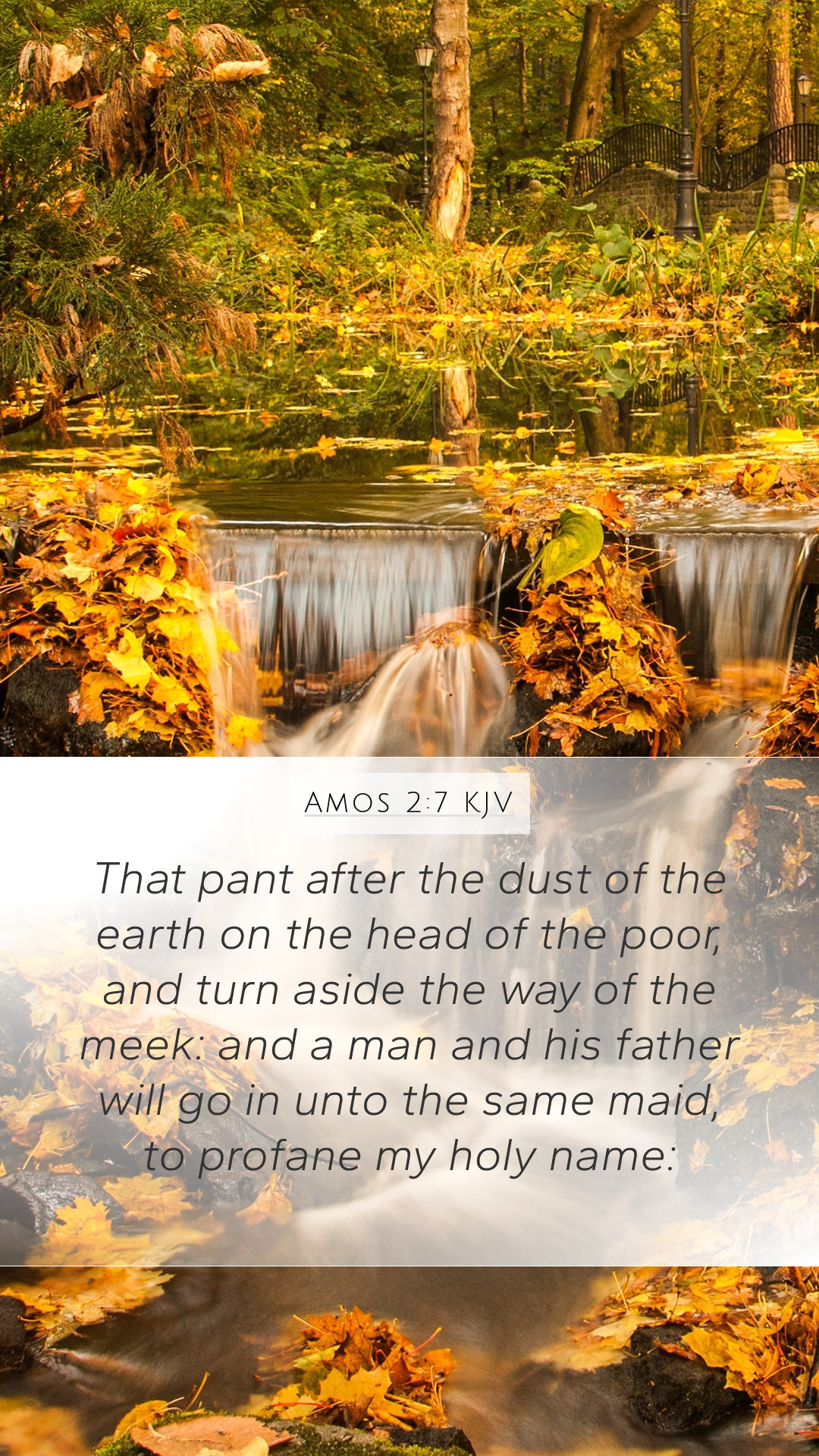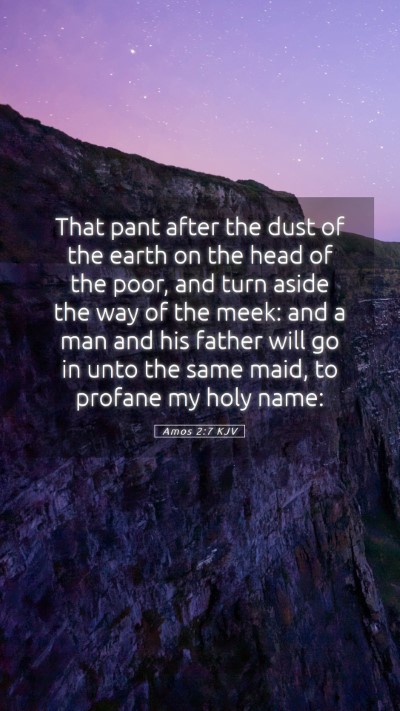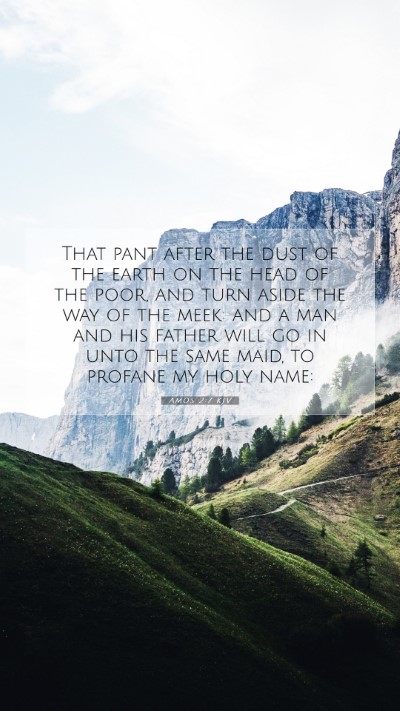Old Testament
Genesis Exodus Leviticus Numbers Deuteronomy Joshua Judges Ruth 1 Samuel 2 Samuel 1 Kings 2 Kings 1 Chronicles 2 Chronicles Ezra Nehemiah Esther Job Psalms Proverbs Ecclesiastes Song of Solomon Isaiah Jeremiah Lamentations Ezekiel Daniel Hosea Joel Amos Obadiah Jonah Micah Nahum Habakkuk Zephaniah Haggai Zechariah MalachiAmos 2:7 Meaning
What is the meaning of Amos 2:7?
That pant after the dust of the earth on the head of the poor, and turn aside the way of the meek: and a man and his father will go in unto the same maid, to profane my holy name:
Amos 2:7 Bible Verse Meaning
Bible Verse Meaning and Interpretation: Amos 2:7
Amos 2:7 (KJV): "That pant after the dust of the earth on the head of the poor, and turn aside the way of the meek: and a man and his father will go in unto the same maid, to profane my holy name."
Overview of Amos 2:7
The verse from Amos reveals the deep injustices and moral decay present within Israel during the prophet's time. It highlights the exploitation of the poor, the corruption of the meek, and the transgression against God’s holiness. This scripture serves as a critical reflection on society's treatment of the vulnerable.
Insights from Commentaries
-
Matthew Henry:
Henry emphasizes the moral corruption of the society depicted in Amos 2:7. He explains that the phrase "pant after the dust of the earth" illustrates the insatiable greed of the wealthy, who exploit the poor and trample upon their dignity. This act reveals a lack of compassion and a disregard for the commands of God, as the people's actions lead them to dishonor His name through their sinful lifestyles.
-
Albert Barnes:
Barnes focuses on the social injustices present in the text, detailing how the leaders’ actions lead to communal sin. He points out that the phrase "turn aside the way of the meek" signifies how the humble and the powerless are mistreated and led astray from justice and righteousness. This exploitation causes not only social disarray but also invites God's impending judgment upon them.
-
Adam Clarke:
Clarke interprets the underlying symbolism in Amos 2:7, mentioning that the described sinful acts—such as immorality involving a father and son with the same maid—reflect the depths of depravity that Israel has reached. He stresses that such behaviors are contrary to God’s intent for humanity to lead lives of holiness and purity, thus signifying a direct affront to God's sacred name.
Theological Implications
Amos 2:7 not only serves as a reflection of personal and communal ethics but also symbolizes God's call for justice and righteousness. The exploitation of the weak and the violation of sacred relational boundaries underline a fundamental breach in covenant fidelity. This passage reminds readers of the expectations God has for His people to adhere to ethical standards that reflect His character.
Application to Modern Society
In an era where social justice remains a significant topic, Amos 2:7's message about caring for the poor and voicing concerns against exploitation is crucial. It serves as a potent reminder to advocate for ethical treatment of all individuals and to challenge systemic injustices present today.
Related Bible Cross References
- Proverbs 14:31 – "He that oppresses the poor reproaches his Maker: but he that honoureth him hath mercy on the poor."
- Isaiah 10:1–2 – "Woe unto them that decree unrighteous decrees, and that write grievousness which they have prescribed; to turn aside the needy from judgment, and to take away the right from the poor of my people."
- Micah 6:8 – "He hath shewed thee, O man, what is good; and what doth the LORD require of thee, but to do justly, and to love mercy, and to walk humbly with thy God?"
Concluding Thoughts on Scripture Analysis
The examination of Amos 2:7 reveals the significant issues surrounding biblical justice and morality. It showcases the call for believers to engage deeply with Scripture, ensuring an understanding that transcends mere reading. By reflecting on the meanings, interpretations, and implications of biblical passages, we empower ourselves and others to live in accordance with God’s will and character.
This verse, and its commentaries, serve as tools for Bible study groups, as part of online Bible study resources and Bible study guides. Engaging in an in-depth Bible verse analysis will promote a deeper understanding of Scripture and its applications in daily life.


